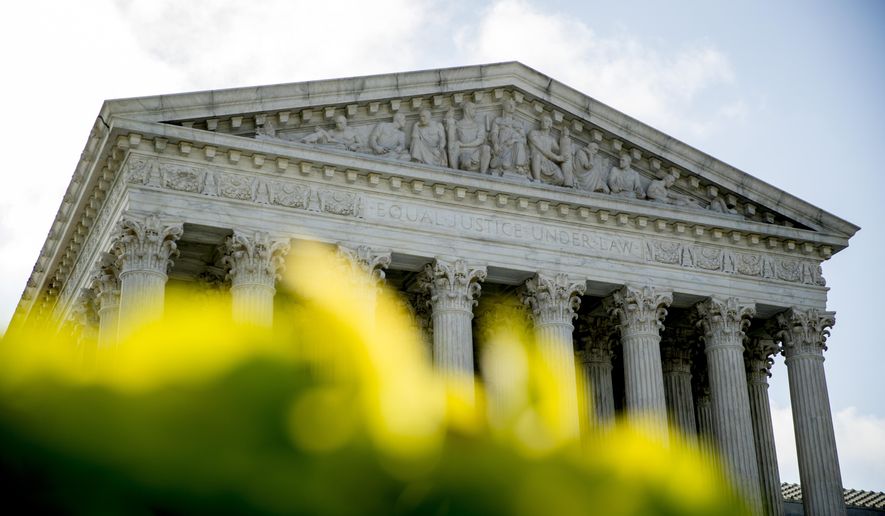Christian students demanding payment from a college for quashing free speech on campus will take their fight to the Supreme Court next term.
The case tests the bounds of students’ ability to collect damages when colleges and universities censor students.
“This is an important opportunity for the courts to hold university officials accountable when they violate the First Amendment,” said John Bursch of Alliance Defending Freedom, a religious-liberty law firm representing the students.
Chike Uzuegbunam, a Christian, attended Georgia Gwinnett College as a student, and in 2016 he sought to distribute leaflets about his faith. He was told he had to apply for a permit for such activity within the school’s free speech zone.
Mr. Uzuegbunam did apply for a reserved space in the designated area, and was granted permission to speak about his religion and evangelize those who inquired about Christianity — but it didn’t last.
The college shut him down after a fellow student complained.
With help from Alliance Defending Freedom, Mr. Uzuegbunam sued nearly a dozen officials at the college, both in their official and individual capacities, alleging a violation of his constitutional rights.
Joseph Bradford, another student who is an evangelical Christian, joined the lawsuit. He wanted to speak on campus about his faith but was afraid doing so would lead to censorship.
Catholic, Jewish and Muslim groups also submitted court filings backing the students.
The college amended its policy after the lawsuit was filed and a lower court dismissed the case — not fining the school for the infringement on the students’ First Amendment rights.
The students won an appearance before the Supreme Court arguing that “nominal damages hold government officials accountable when constitutional violations occur.”
Nominal damages can be as low as $1, but they signify an acknowledgment of wrongdoing.
Without comment, the justices last week announced they will hear the legal conflict during the 2020 term, which begins in October.
Mr. Uzuegbunam said that in today’s world anything can offend someone, but that doesn’t give officials free rein to censor speech.
“The essence of free speech is the ability to tell people the things they do not want to hear,” he told reporters.
Georgia Gwinnett College overhauled the policy, which now allows students to generally speak and distribute pamphlets anywhere on campus without approval. But groups larger than 30 students still have to seek a permit, according to court documents.
Georgia’s Attorney General Christopher Carr argued in court documents on behalf of the school officials, telling the justices that they should not grant the case because the students did not properly assert damages during the lower court arguments before the policy was revised and the case accordingly dismissed. Both students have also since graduated, the court filing noted.
“If it appears at any time before a case has been decided that no requested relief is likely to redress the injuries alleged, the case is moot and must be dismissed,” the officials argued.
State officials did not immediately return a request for comment on the high court’s move to hear the dispute.
College officials declined to comment other than to say the school “has supported and continues to support the rights of individuals to freely and openly share their thoughts and ideas on the college’s campus in accordance with the First Amendment.”
Advocacy groups from across the political and religious spectrums have submitted court filings to support the students.
Young Americans for Liberty, a libertarian nonprofit group, said free speech must be protected in the educational environments — and any violation of a constitutional right must be punished.
“Free speech is essential in university environments, and individuals must be allowed to redress past violations of their constitutional rights,” the group said in court papers.
Meanwhile, the American Humanist Association, which often litigates First Amendment cases before the high court advocating for the separation of church and state, has sided with the students in this dispute.
The group petitioned the court to grant the students’ legal challenge, saying the issue of when nominal damages should be rewarded has been applied differently by various courts — so the justices should set a standard to avoid the discrepancy.
• Alex Swoyer can be reached at aswoyer@washingtontimes.com.




Please read our comment policy before commenting.